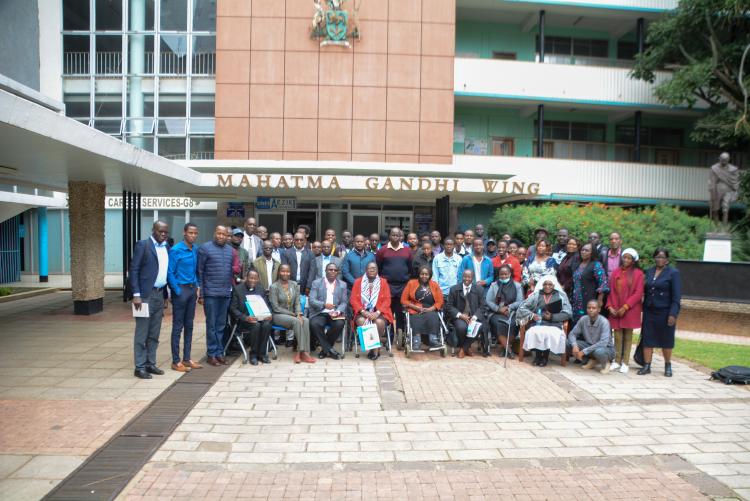“Most Artificial Intelligence powered systems especially generative AI are likely of low quality and cannot be compared to materials written by the best minds in the world, but they are truly disruptive and is turning the markets and academia upside down.” Prof. Loebbecke said as she elucidated the audience with a thought-provoking perspective on Artificial Intelligence (AI).
Prof. Dr. Claudia Loebbecke, a professor from the Department of Media and Technology Management, hails from the renowned University of Cologne in Germany.
“The term "intelligent" bestowed upon AI systems merely refers to their adeptness in manipulating pre-existing data.” She spoke. Prof. Loebbecke further expounded on how algorithms and the vast realm of big data empower machines to comprehend, interpret, learn, and engage in interactive exchanges. Prof. Loebbecke emphasised saying, “everything that is termed digital, robotics, or data analytics cannot be classified as AI,” but she affirmed that, “all AI relies on the bedrock that is data.”
Highlighting the core essence of AI, Prof. Loebbecke evoked the timeless words of Alan Turing, underscoring the need for AI to seamlessly integrate into human experiences. The Turing Test, formulated by Turing in 1950, aimed to ensure that humans remain blissfully unaware when they interact with a machine driven by AI. Firmly asserting that AI and data analytics are indisputably permanent fixtures in our evolving landscape, Prof. Loebbecke cemented her position as a leading authority on the subject.
Next, it was Ms. Loise Ochanda's turn to share insights from the International Developmental Research Center's programme office. Her focus revolved around responsible AI adoption through targeted mentorship programs for Africans, bolstering talent and research in multiple disciplines, all in the pursuit of AI for Development. Ochanda outlined key policy considerations that encompassed implications of AI in the workforce, data protection concerns, innovative approaches, and the imperative task of developing practical solutions that foster inclusive and gender-responsive education.
Subsequently, Ms. Valerie Kutima, a Research Fellow from Strathmore University, delved into the intriguing realm of conflicts and complementarity between Artificial Intelligence and Intellectual Property. Kutima shed light on how AI systems strive to imitate human cognitive abilities, while also exploring the concept of machine learning—a facet of AI that facilitates autonomous enhancement of performance over time, exemplified by the prowess of expressway systems. Intricacies surrounding algorithms, as patterns utilized by AI systems, were also dissected.
“Should the patent be attributed to the AI itself or to the creator of the AI?” asked Ms. Kutima. Moreover, the topic of copyright in relation to AI content was brought to the forefront. Does the creative output generated by AI qualify as original, or does credit primarily belong to the individuals who input the data sets? The quandary of extending copyright protection to AI entities also loomed large, exemplified by the United Kingdom's granting of copyrights through robotic licenses. Furthermore, Kutima probed into the capacity of AI to handle administrative tasks via searches and franchising, thereby encompassing the domain of trademarks.
The convergence of AI and intellectual property showcased multiple areas of overlap. Kutima highlighted the role of AI as a technological enabler in managing intellectual property rights. Simultaneously, she addressed intellectual property as a regulatory framework designed to protect the sphere of AI. It became increasingly evident that AI has already begun leaving an indelible mark on various aspects of intellectual property, with potential hurdles to transparency emerging as IP safeguards intertwine with AI systems that inherently lack biases.
The workshop was officially inaugurated by Prof. Jack Odhiambo, the dean of the Faculty of Arts and Social Services. Taking charge as the moderator was Dr. Oranga James from the department of Journalism and Mass Communication.
Concluding the workshop was Dr. Oredo John, leaving the attendees with his closing remarks.

